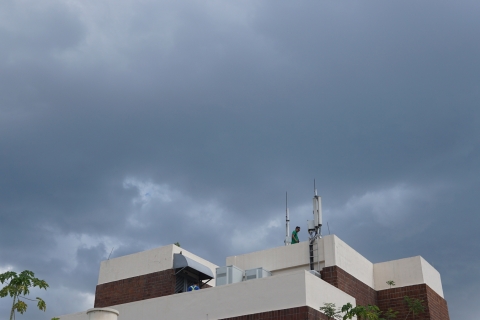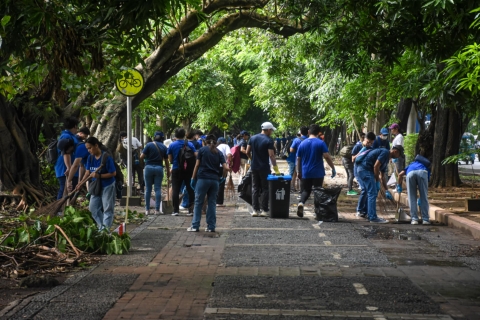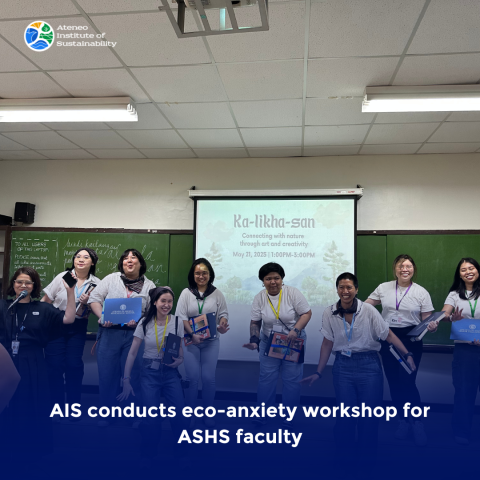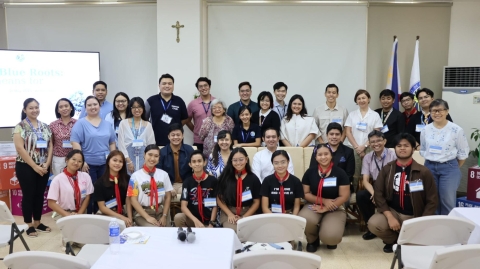One Big Flight of the tiniest wings: AIS installs 16th pollinator pocket in Ateneo at the Grade School Complex
15 Jul 2025 | By Hxyll Almonguera
"What if creatures as small as bees can carry and bloom hope for our ecosystem?"
The Ateneo Institute of Sustainability (AIS), in coordination with the Central Facilities Management Office (CMFO) and Ateneo Grade School (AGS), successfully erected the 16th Pollinator Pocket on the Loyola Heights campus. Installed last 16 June 2025 at the AGS Complex, this was one of the initiatives of AGS for upholding the University-wide commitment of becoming a Laudato Si’ University by 2029, which is a response to Pope Francis’ 2015 encyclical.
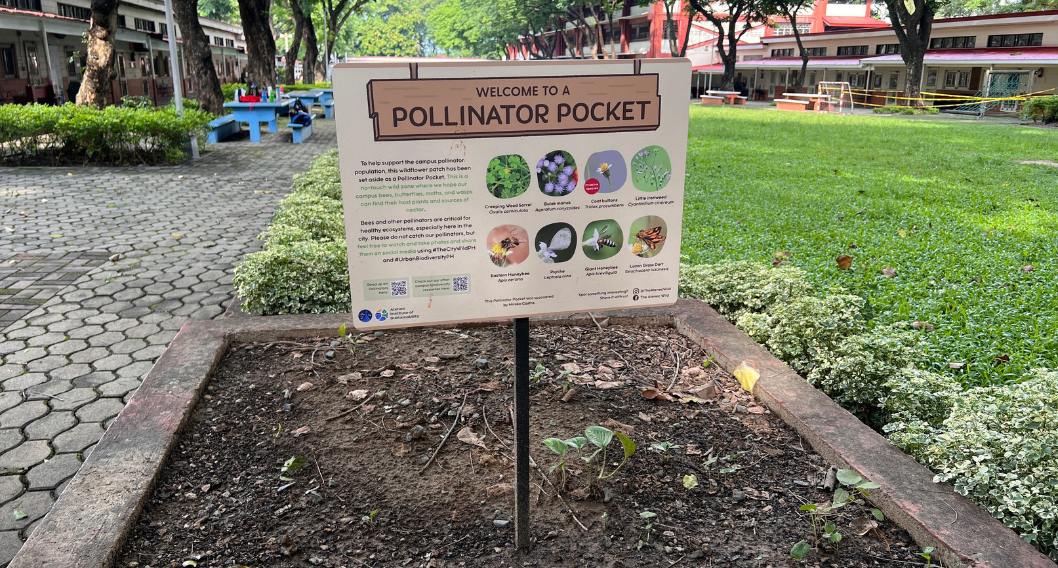
How do Pollinator Pockets contribute to the University’s embodiment of the Laudato Si’ Goals?
Pollinator Pockets, albeit small and replicable, play a critical role in sustaining the integrity of the campus ecosystem by aiding the natural life cycle of pollinators (e.g., bees, butterflies, moths, etc). When pollination is successfully executed, it ensures the production of fruits we consume and the seeds that give rise to more plants. On a broader scale, the absence of pollinators would threaten not only humanity but also the survival of terrestrial ecosystems (Jones & Rader, 2022). Globally, around 1,400 crop plants are grown, most essential for human diet—nearly 80% depend on pollinators (US Department of Agriculture, n.d.). Thus, dedicating campus spaces to wildflower patches and wild zones can substantially help boost the abundance of pollinators both within and beyond the Ateneo campus.
However, our pollinators are at high risk due to rapid urbanization. According to Płaskonka et al. (2024), the alterations in the natural environment exacerbated by the expansion of urbanization can lead to following destructions: (1) habitat fragmentation, (2) local extinction of various species, and (3) conversion of natural areas into paved surfaces. Given these circumstances, AIS initiated Pollinator Pockets in campus grounds to help maintain the proliferation of essential tiny but mighty creatures amidst the megapolis that is Metro Manila.
Thus, this pressing question emerges: How can Ateneo truly respond to the cry of the Earth amid growing threats from rapid urbanization and climate change?
Collaboration among campus offices is vital to elevating the purpose of Pollinator Pockets. A step in this vision was the 2 April 2025 exploratory meeting—between CFMO, SEEDS, AGS, and AIS—aimed at reviewing the 2024 Pollinator Pockets Report and exploring the integration of pockets into AGS operations and curricula.
Furthermore, AIS also features the Pollinator Pockets in its “Sustainability Walk” initiative, which aims to raise awareness about campus-wide sustainability efforts. While regular maintenance and assessment are crucial, greater impact comes when students and community members are informed and actively involved. Their participation not merely promotes the project but also underlines individual responsibility in ecosystem preservation. Ultimately, initiatives like the Sustainability Walk are periodically offered as an engaging, meaningful approach to appreciate our urban biodiversity on campus.
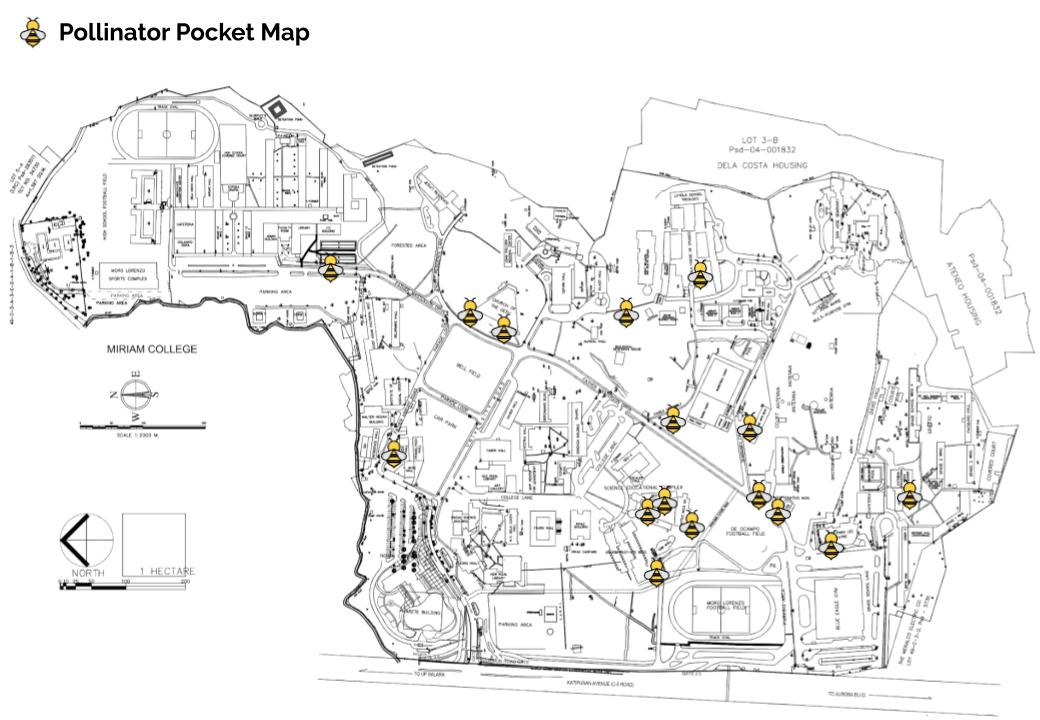
Moving forward in flight with our pollinators
It’s a striking paradox—how the tiniest creatures, such as bees or moths, can have an integral role in sustaining our ecosystem. Yet, they are so powerless if confronted by the humongous human activities. Thus, instead of contributing to their decline, let us be at the forefront of protecting their habitats.
Be part of the movement and support Ateneo’s biodiversity conservation initiatives, such as Pollinator Pockets. To learn more about our campus biodiversity efforts, you may visit https://www.ateneo.edu/ais/programs/biodiversity. If you would like to partake, suggest or report on any biodiversity-related endeavors, you may email AIS at ais@ateneo.edu




